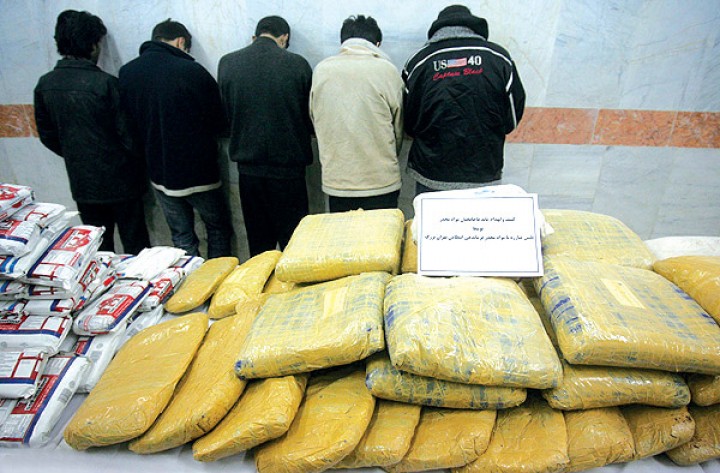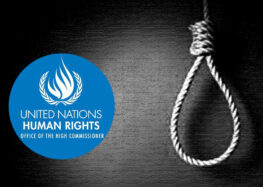Thousands of Iranian Death Row Inmates to Receive Sentence Reviews Under Amended Drug Law

Alleged drug traffickers stand in front of narcotics after a police operation.
Thousands of Iranians currently on death row for low-level drug crimes will receive sentence reviews under a newly amended law, announced Tehran Prosecutor Abbas Jafari Dowlatabadi on October 31, 2017.
“The judges presiding over these cases have to be ready to implement the newly amended Law Against Drug Trafficking,” he said. “The law will become mandatory 15 days after its publication in the official newspaper [of the Islamic Republic of Iran] www.rrk.ir.”
“The judges have to review the death penalties and issue new sentences based on the new law,” he added.
On October 14, the Guardian Council, which vets laws for conformity with Islamic principles, approved the amendment after it was passed in Parliament, giving hope to an estimated 4,000 prisoners on death row in Iran for petty drug-related crimes.
Iran maintains one of the highest per-capita execution rates in the world. At least 567 people were executed in 2016, down 42 percent from the 977 who were in executed in 2015. The vast majority of executions were for petty drug-trafficking crimes, including for carrying small amounts of illegal drugs.
Under the new law, the death penalty can only be issued in convictions involving:
- Armed trafficking
- Playing a leading role in organizing and financing drug trafficking, including with the use of child trafficking
- In cases involving previous death sentences, life sentences, or sentences of more than 15 years
- Possession or transportation of more than 50 kilos of opium and other “traditional drugs,” two kilos of heroin, or three kilos of methamphetamine
The initial version of the law mandated capital punishment for possession or transportation of more than five kilos of opium or 30 grams of heroin or industrial narcotics.
“Most of the people who have been executed in the country were mainly small-time traffickers, while the profits went to gang leaders living comfortably abroad,” said the deputy chairman of the parliamentary Legal and Judicial Affairs Committee, Mohammad Kazemi, on October 18.
On September 10, committee member Yahya Kamalipour said the amended law would be applied retroactively.
The UN, other international rights-monitoring groups, and human rights activists inside the country have heavily criticized Iran’s high execution rate.
Several anti-death-penalty activists have been imprisoned in part for their stance on the issue, including human rights defender Narges Mohammadi and political activist Arash Sadeghi.






